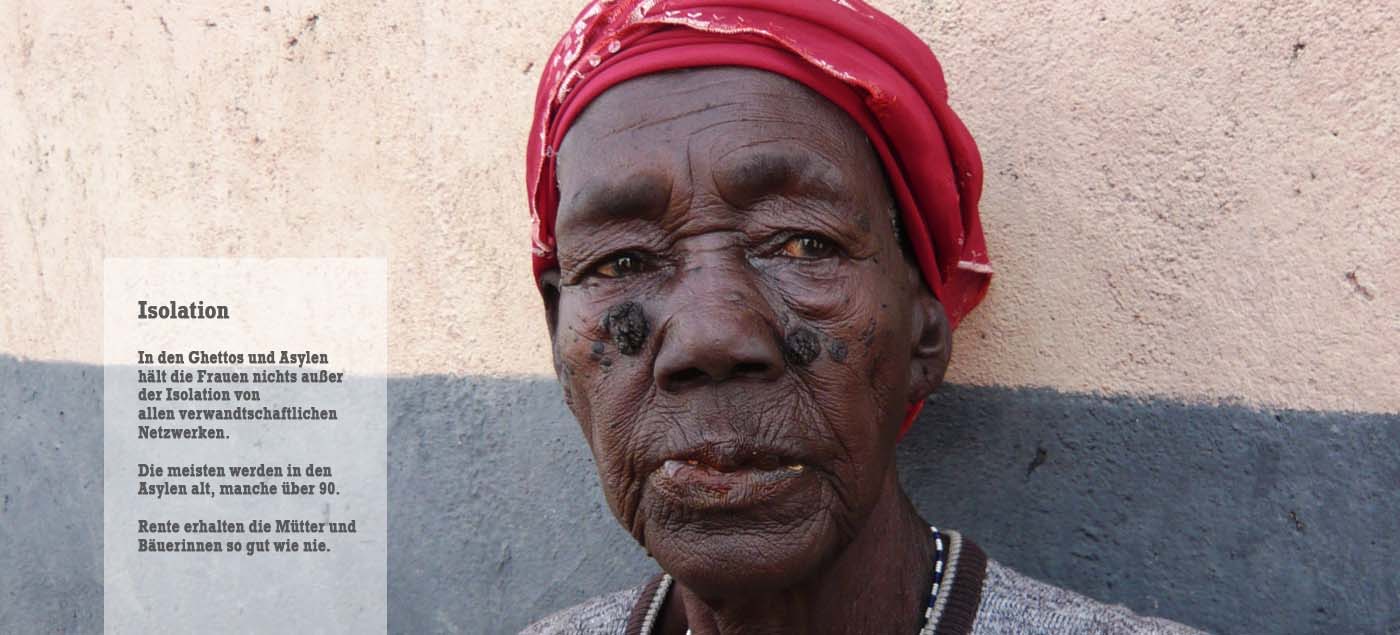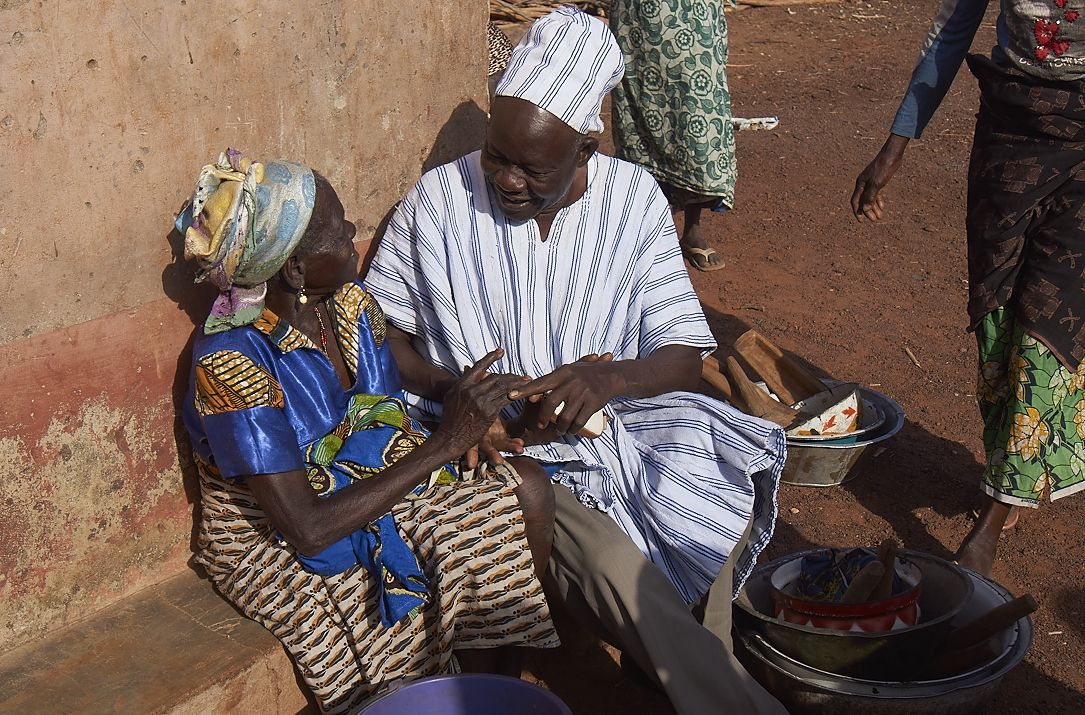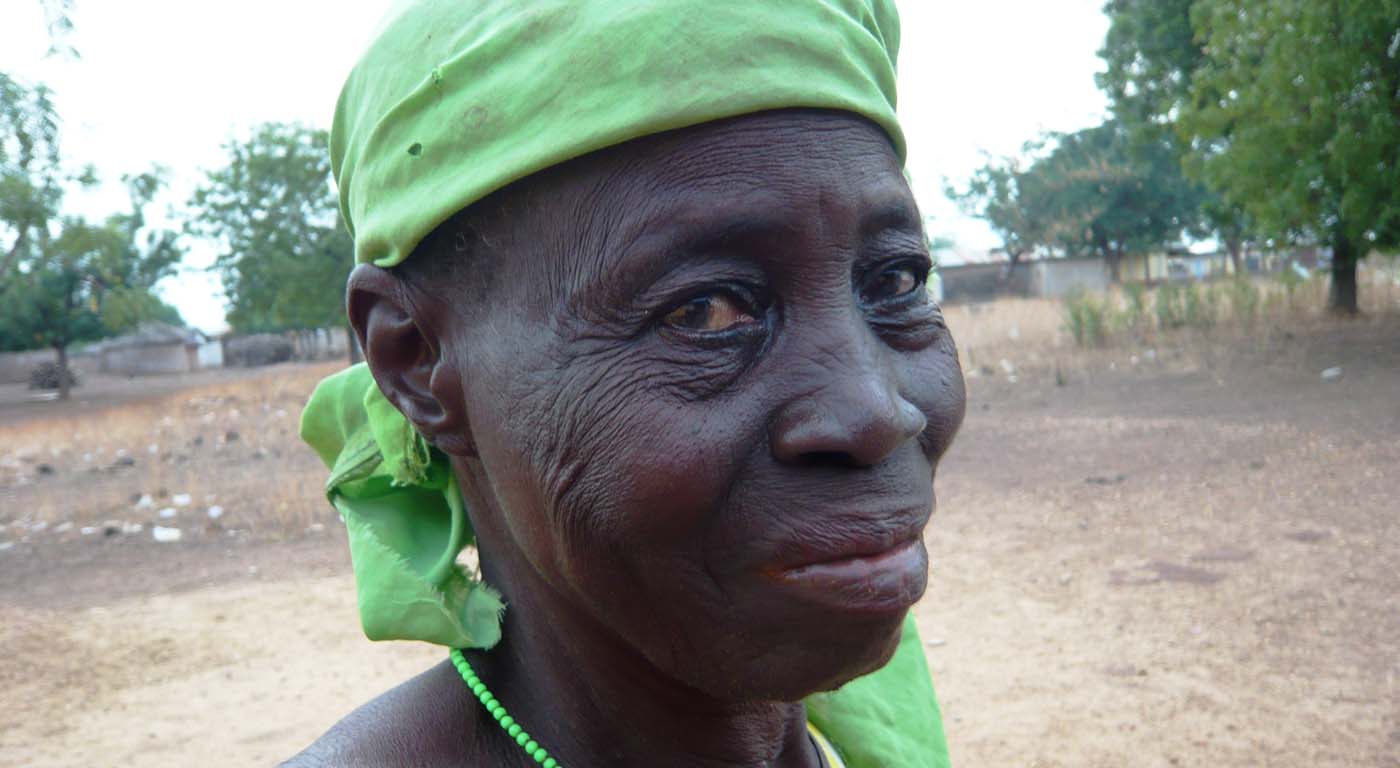Development Aid – is it outmoded?
Development aid fell under critique by intellectuals from the tricont. The claims: a waste of ressources, counter-productive, instrumentalized for economic interests of the donors, unfit for local conditions. Much of this is true and can be witnessed in Ghana, an African country that sometimes seems swamped with volunteers. Nonetheless, most harm was done by Mega-Organisations and governmental aid that was dumped in corrupt dictatorships.
Our own organization is very small. The “Help for Witch-hunt Victims” decided to support the ghanaian “Witch-hunt Victims Empowerment Project” in their humanitarian intervention. For long, the Ghanaian state showed no interest in dealing with this particularily complex problem. Big organizations could not digest the complicated matter for their donor and declined support so far.
We had the urgent need to support refugees that suffered from infirmity, grinding poverty, sickness and death. They are outcasts of their own society. Western visitors failed to ensure lasting support. We are dedicated to stay with the refugees until the witch-hunts cease.
Permanent presence
Regular visits by our Ghanaian team keep the outcasts grounded. In situations of distress and a lack of prospects the team offers safeness, protection and organizes shelters. Simon Ngota, Evelyn Ngota and Martina Ayaab encourage the self-assurance of outcasts by their permanent presence in and beneath the sanctuaries. They counsel, assist, help and raise awareness. Through this proximity, they are able to trace the changes of the dynamic situation and respond accordingly.
Economy
The real demand is sometimes conceiled by the ideology of the “help to help themselves”. Inputs of just 50 Euro cannot make entrepreneurs, but only bridge seasonal gaps. Subsistence farming is equally under pressure today and totally extinct in western societies.
In the past, other projects targeting the ghettoes underestimated the complexity of production chains. Donated machinery raise a permanent demand for spare parts and mechanics for maintenance. Grain-mills ran defunct and then rotted without repair. Tools and bycicles were appropriated by visiting relatives, who could make better use of them than their grandmothers. The communities around keep a watchful and envious eye over the current status of the women.
As many Westerners suggest pottery: clay-digging is hard work, fuel-wood is scarce and just very few women are experienced in pottery.
We want to alleviate the daily grind of the women. This means reducing the labour time and intensity. Most shifts away from traditional modes of production lead to a partial increase of both. We do hire tractors and sprayers for land-cultivation. In Gushiegu we purchased 2-3 ha of land next to the ghetto. Most women were farmers and all know how to do that work.
Our best chance is to organize labour to decrease the hardships on a collective level. In some cases we do offer support for small-income-generation, but these are not micro-credits but micro-grants. In general we support tried and tested ways of production like chewing-sticks (traditional toothbrushes), soap, shea-butter, moringa-powder and some beads for the local markets.
Awareness and education
It is only some decades ago, that the first schools opened in the Konkomba-lands. None of the women was literate in 2012. In cooperation with the Danish organisation “Seniors without Borders” we hired teachers for primary education in the ghettos. On a regular base the women are informed of their constitutional rights. Our team also attaches great importance to raising awareness about hygiene and health.
Our Prospects
The current budget of the WHVEP stays around 1400 Euro per month. We seek to hire two additional social workers in the bigger sanctuaries at Tindang and Kukuo. For our office in Gushiegu we need another experienced worker. An increase in donations would also allow us to intensify village-visits and resettlements. As similar ghettos exist in Burkina Faso and Togo, we have the option to share and forward our experience.
Our first aim is to allow the 1200 witch-hunt victims to live a decent life.
Aren’t there risks?
Undesired developments are common place in interventions. In Gushiegu, three moringa-trees were vandalized by neighbours. Once, a man was cutting the limbs of a shea-tree on the womens land.
To intervene immediately against aggressions, we rely on our team to mediate conflict early and quick. They provide a protective sphere.
We can rule out, that a higher quality of life of the outcasts would provide an incentive for common people to pretend fake accusations. Also we have no sign of an increase of accusations due to the work of the “Witch-hunt Victims Empowerment Project” – just the opposite.
Our team can react instantly towards dynamic processes on the local level.
Our Experience
In general, the attitude of the surrounding communities towards the outcasts improves through the intervention. People dare to help the women and public vilifying through children or youth decreases.
The ghettos were regarded just punishment for arrested witches. Now the accusers and commoners see, that other people eat together with “witches” and that people all over the world visit them to share their solidarity. The confusion is productive for the common accusers.
But also the empowerment of the women increased. To increase their self-assurance is of main importance for us. We offes support for the women to sue their perpetrators and claim their property, if it was destroyed or taken. And signs are hopeful of a general change in the attitude of the witch-hunt victims in Ghana:
The women in Kukuo, the biggest ghetto, heard about the lynching of an old woman in Tema, the southern industrial port. They announced a naked protest-rally, if the perpetrators were not punished according to Ghanaian law.
This post is also available in: German




